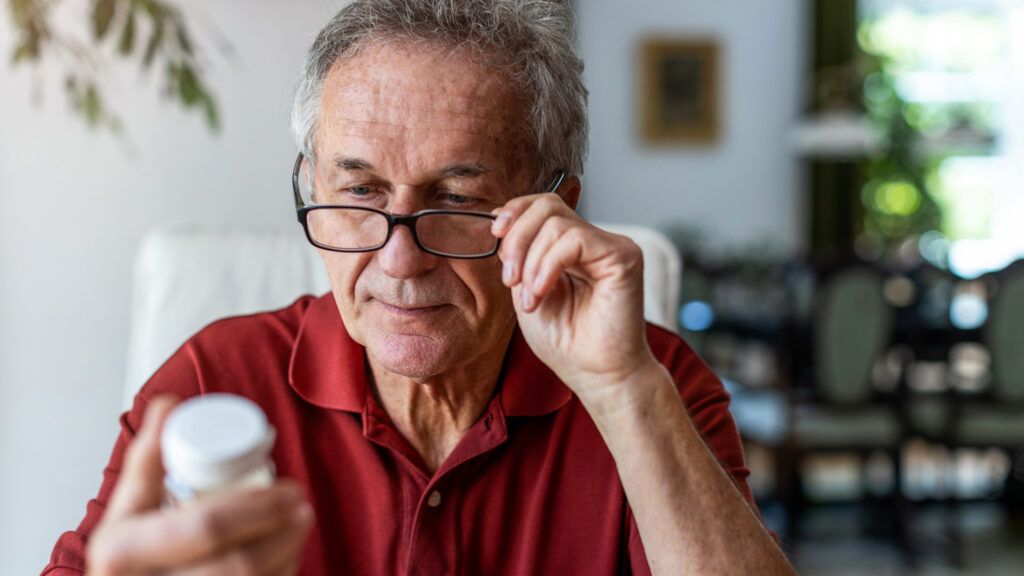Simple as it may seem, managing your loved one’s medications is serious business. Mistakes can have very real consequences. If you’ve taken on this responsibility as a caregiver, it’s important to take a careful and focused approach to filling, dispensing, organizing and monitoring medications in order to keep your loved one as safe and healthy as possible. This may mean keeping track of multiple medications on any given day, as nearly 40 percent of older adults take five or more prescription drugs.
The risks of side effects related to the use of drugs increase as people age, and side effects are likely to more severe. So, here are some things to keep in mind if managing your loved one’s medications is a part of your regular routine:
Getting prescriptions
- Don’t be shy about asking questions and taking notes in the doctor’s office when a new medication is being prescribed for your loved one. Make sure you’re clear about what the medication is for, how and when it needs to be taken and what the possible side effects are. Let the doctor know of any drug allergies you know of, and share any concerns. You may be worried about your loved one falling if a suggested drug causes dizziness or drowsiness, for example. Ask about possible alternatives.
- If possible, try to get all your prescriptions filled at the same pharmacy. That way, your pharmacist can keep good track of what your loved one is taking, to stay apprised of any possible interactions or duplicate prescriptions.
- If you have to fill prescriptions at more than one pharmacy, let each pharmacist know of other medications your loved one takes, as well as any over-the counter medications and supplements. Aspirin interacts with blood thinners, for example.
Organizing medications
- Keeping an updated list of all your loved one’s medications is invaluable. You can share it with any medical professionals, pharmacists and friends or professional caregivers who may also be caring for your loved one. Tape one on the refrigerator or inside a cabinet at your loved one’s home, and carry another one with you all the time. Dosages of blood thinners and certain other medications continually change, so it’s especially important to make sure you keep those current. You can keep a simple list of every medication and dosage, or if you want, make it more comprehensive with list of prescribing medical professional and phone number, purpose of the drug, and any other information you want to have quickly on-hand.
- It helps to arrange drugs in an orderly manner, corresponding to when and how many times each is taken per day. You can arrange them in a cabinet yourself or get the pharmacist to prepackage them for each day and time. You can also buy pill boxes with compartments for each day of the week and for morning, noon and night. Some even have audio reminders to let you know when to dispense medications. Make sure medications like insulin are properly refrigerated.
- Keep all medications in the original bottle or package in which it was filled, so that you know exactly what’s there, whether it may be expired, who prescribed it, and when and where it was filled.
Keeping track of medications
- Do whatever you can to create a routine around dispensing your loved one’s medications so that you can remember more easily. Maybe certain prescriptions are taken right after breakfast and others after teeth-brushing.
- If you have trouble remembering, you may want to set a timer on your phone, watch or alarm clock.
- Keep up with your own doctor’s appointments so that you’re as healthy and clear-headed as possible. Your loved one depends on you, so if you yourself are having memory or other health issues, you may need help with handling these medications. A skilled in-home health professional or care aide can take over or assist you with this important task, if needed.
- Make sure to get refills on time, which means before you run out. Call them in to the pharmacist or doctor when you notice that the bottles or packages are getting low—not when they’re empty.
Helping your loved one take medications safely
- Read the information that comes with each prescription for possible side effects and note them down. Keep it all somewhere where you can quickly access it.
- Pay attention to instructions. Does a particular medication need to be taken with food or on an empty stomach? Don’t take more or less than is prescribed.
- Wear glasses, if you need them, when you’re reading drug labels. Do so in good light.
- Don’t dispense drugs when you’re distracted. Focus on what you’re doing.
- Check labels periodically to make sure drugs have not expired.
- You might consider an automatic medication dispenser, which is programmed to dispense correct dosages at the correct times each day.
- A medication alarm watch or bracelet or a mobile app can send you reminders on when to give your loved one his or her medications.
- Be careful about tapering down on a medication that can’t be stopped immediately. Talk to the doctor about how to do this safely.
- If your loved one has trouble swallowing, ask the doctor whether his or her particular medications can be crushed up into soft foods or whether there are alternative liquid, concentrate, sprinkles or dissolvable tablets or chews to make things easier.
- If your loved one appears to be suffering side effects of any medications, contact the doctor immediately.





